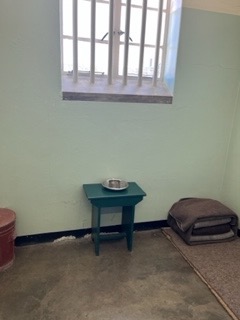
Change & Transformation in Contemporary South Africa
This past week was jampacked with excursions and new experiences that ultimately allowed us to get a better understanding of how South Africa’s history is currently impacting its contemporary society. More specifically, we took a tour of Robben Island which is considered to be a World Heritage Site because the buildings on the island are a direct representation of the oppression that existed all over South Africa under the apartheid. They also embody the power of the human spirit, freedom, and justice. You see, Robben Island existed long before the twentieth century and was originally inhabited by different indigenous groups and a variety of wildlife, including seals, birds, penguins, and tortoises (South African History Online). However, it was declared as a prison again in 1961 and used during the apartheid to house a multitude of political prisoners. Former president Nelson Mandela was imprisoned there and endured the prison’s notoriously hard conditions. In fact, the image that I have attached below is of Mandela’s prison cell. The cell contained a basin, a small table for meals, and a blanket lined on top of a bed of straw. I was totally shocked at the harsh conditions that Mandela and other prisoners- including our tour guide who was a political prisoner in the late 1980s- had to endure at Robben Island.
Reflecting back on the tour and of Mandela’s prison cell, my whole perception of South Africa has been transformed. Yes, the country is home to such a beautiful landscape and culture; although, it is also plagued by inequality and injustice. In fact, the same economic, political, and social disparities still exist within the country and take the form of racial stratification and segregation. Certain courses, such as my Global Service Learning course and Politics of Cultural Change in Contemporary South Africa course, are enlightening me about the aftermath of the apartheid and how this has affected the South Africa we know today. In addition, even with a more diverse government, not much impactful change has occurred because of corruption and mismanagement. With that being said, I hope to take everything I have learned from these courses and our tour of Robben Island and truly discover new ways to bring about change and transformation. Whether that means having everyday conversations with the South African citizens around me or continuing to study the various aspects of South African history, I plan to grapple with these complex issues in order to gain a better understanding of the various systems that currently exist around me.
